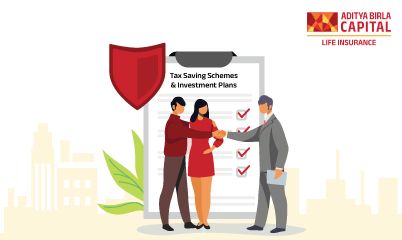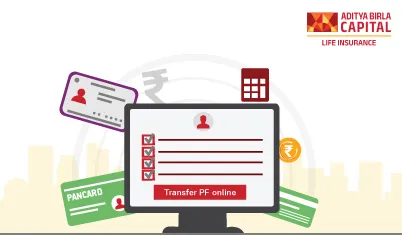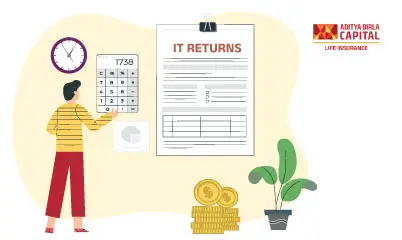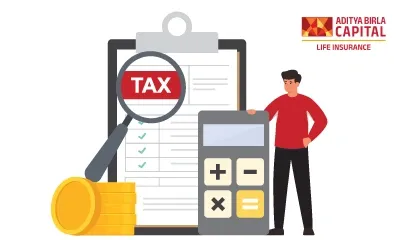What are the Deductions Under Sections 80C and 80U?

Plan Smarter, Live Better!


- Table of Contents
Section 80C's Sub-sections
The broad number of deductions that an individual may claim under Section 80C spurred the development of a subsection for improved taxpayer knowledge and increased clarity of the regulations. The list of subsections and the tax advantages a person may use are provided below.
- Section 80CCC
This covers contributions made to pension funds, regardless of the insurer, up to a limit of INR 1.5 lakh in deductions. Only single taxpayers are eligible for this deduction.
- Section 80CCD
This section offers tax deductions for contributions made to specific pension plans that the Central Government has approved. This section encourages taxpayers to develop the habit of saving money. Tax deductions made under this provision may be claimed by both individuals and their employers, providing the conclusion is less than 10% of the employee's wage. This subsection has been divided into three categories:
a. Section 80CCD (1): This applies to workers who voluntarily make NPS contributions; the tax deduction ceiling is 10% of one's gross annual pay (Basic + DA).
b. Section 80CCD(1B): An employee who voluntarily contributes to the NPS can claim an extra deduction of up to INR 50,000, subject to a 10% deduction from base pay (Basic + DA). However, if they have previously been granted deductions under 80CCD (1), they will not be qualified for tax deductions under this section.
c. Section 80CCD (2): Employees who work for an employer who contributes the NPS Funds for Employees are covered under Section 80CCD (2). Employees will thus be qualified for a maximum 10% reduction from their gross pay (basic plus DA). Atal Pension Yojana and National Pension Scheme are the programmes considered for deduction under this section.
- Section 80CCF
This subsection offers tax discounts for purchasing certain long-term infrastructure bonds by government notification. Hindu Undivided Families and individuals might both claim a deduction of INR 20,000. Benefits under this provision are no longer available as of the 2013–2014 fiscal year.
- Section 80CCG
Individuals are entitled to tax deductions of up to 50% of the amount invested in equity savings plans approved by the government under this section, with a maximum deduction of INR 25,000 per year for three consecutive Assessment Years.
FAQs Deduction Under 80c and 80u
If you are an individual or fall under the "Hindu Undivided Family" category, you may be able to claim deductions under section 80C.
If you invest in any of the following, you may be eligible for tax deductions under Section 80C of the Income Tax Act of 1961:
- Contribution to the Provident Fund or Superannuation
- The purchase of life insurance for oneself, one's spouse, or one's children.
- Payment for the education of up to two children's tuition expenses
- Payment for a fixed deposit with a five-year minimum term
- Payment for a residential property's development or acquisition
- Additional deductions for mutual fund investments, NABARD bond purchases, Senior Citizens Savings Programs, etc.
Under Section 80C of the Income Tax Act of 1961, an individual may deduct a maximum of INR 1.5 lakh in taxes.
A person can claim tax deductions for up to two children's tuition fees for full-time courses at educational institutions such as schools, colleges, and universities in India under Section 80C of the Income Tax Act, 1961.
Under Section 80C of the Income Tax Act of 1961, the following programmes are tax deductible:
- Employee Provident Fund (EPF)
- Public Provident Fund (PPF)
- Voluntary Provident Fund (VPF)
Yes, the taxpayer can get a deduction given that he genuinely spent costs for his father's medical care. The amount of the deduction is ₹75,000 (for those who are 60% disabled); it doesn't seem that having money in a bank account counts.
Section 80TTB does not exclude interest on REC bonds.
All persons with gross annual incomes of Rs. 5,00,000 or less are eligible for a tax refund. It doesn't seem to matter where your money comes from.
Only life insurance premiums are eligible for the tax break under section 80C; general insurance, such as auto, travel, and other types of insurance, are not included. Although under Section 80D of the Income Tax Act of 1961, benefits for health insurance may be obtained.
Section 80C allows for the reimbursement of stamp duty, registration fees, and other transfer-related costs provided the following conditions are met:
- The home property's building is now complete.
- The move has already happened.
- These charges have been made in your honour.
Buy ₹1 Crore Term Insurance at Just ₹575/month1
ABSLI DigiShield Plan
Life cover up to 100 years of age.
Joint Cover Option
Inbuilt Terminal Illness Benefit
Tax Benefit^
Return of Premium Option~
Life Cover
₹1 crore
Premium:
₹575/month1
Most Popular Calculator
ADV/6/23-24/546







